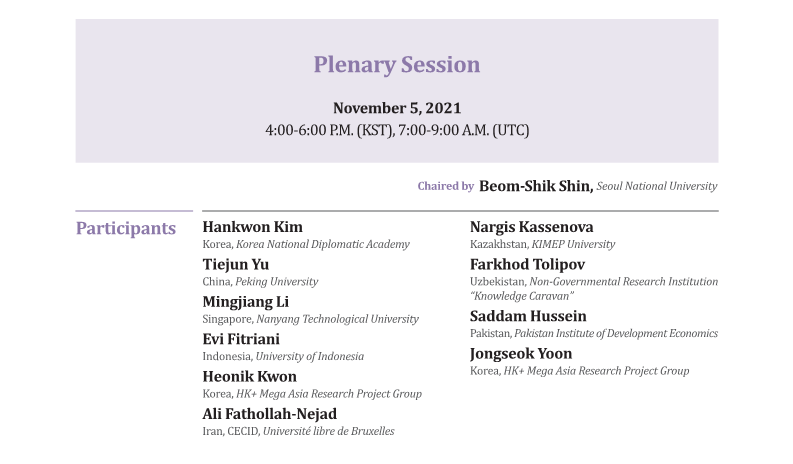
Chairperson
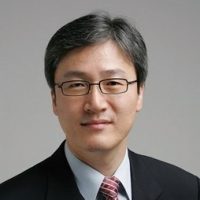
Beom-Shik Shin / SNUAC HK+ Mega-Asia Research Project Group, professor of international relations / Korea
Dr. Shin is currently professor of international relations, and director for Eurasian and Central Asian Studies, Asia Center at Seoul National University, Korea, and was visiting professor at Henry Jackson School of International Studies at University of Washington in Seattle. He served as General Director(2008~9) and Director of Foreign Relations(2004~7) of Korean Association of Slavic Studies. He also served as Director(2013~5) of the Institute of Russian, East European, and Eurasian Studies at Seoul National University. He received his Ph.D. in Politics from MGIMO(Moscow State Institute of International Relations) and his research centers on Russian politics and foreign policy, International Relations in Eurasia, international politics of energy and environment, and comparative regional studies. He published numerous articles including “Critical Review of Korea-Russia Strategic Partnership: Common Interest and Practical Strategy (2010),” “The International Politics of Climate Change and Prospect of U.S.-China Relations (2011),” “Global Network Politics of Russia’s Oil and Gas Pipeline Network Construction toward Northeast Asia (2012),” and also edited several books including The Challenges of Eurasia and International Relations in the 21st Century (2007), The Rise of China and Central Asia (2015).
Participants
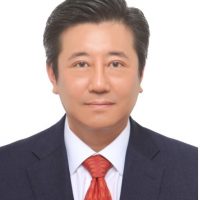
Hankwon Kim / Korea National Diplomatic Academy, Associate professor / Korea
Dr. Hankwon Kim is a professor of the Department of Asian and Pacific Studies as well as the head of Center for Chinese Studies at Institute of Foreign Affairs and National Security (IFANS), Korea National Diplomatic Academy (KNDA), Ministry of Foreign Affairs of the Republic of Korea. Before joining KNDA, Dr. Kim was a research fellow and the director of the Center for China Studies at the Asan Institute for Policy Studies in Seoul, South Korea. He completed a postdoctoral program at Tsinghua University and was also a research scholar at the School of International Studies, Peking University, China. Dr. Kim holds a Ph.D. in International Relations from American University, USA. Dr. Kim is co-author of China Complex (Asan Institute for Policy Studies: 2014) and has published other books and articles in several academic journals, including “Evaluating China’s Soft Power: Dimensions of Norms and Attraction” in J.H. Chung (ed.) Assessing China’s Power (2015) and “The Implications of the Chinese ‘String of Pearls’ for the U.S. Return to Asia Policy: the U.S., China, and India in the Indian Ocean” in the Journal of Global Policy and Governance (2013).
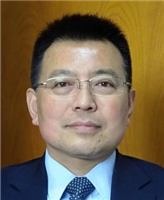
Tiejun Yu / Peking University, Professor / China
Yu Tiejun is a professor at Peking University’s School of International Studies and vice president of the university’s Institute of International and Strategic Studies. He was a Fulbright visiting scholar at MIT’s security studies program (2018–19), visiting scholar at Stanford University and Harvard University (2005–06), and studied at the University of Tokyo (1998–2000). Yu is executive editor in chief of China International Strategy Review and has written extensively on international security, East Asian international relations, and China’s foreign and defense policy. He was awarded Peking University’s Excellent Teaching Award and Distinguished Research Award in 2010 and 2017, respectively. Yu received his BA, MA, and PhD from Peking University. Dr. Yu has co-edited The Sino-Japanese Security and Defense Exchange: Past, Present, and Prospect (Beijing: World Affairs Press, 2012, with Zhu Feng and Akiyama Masahiro). His selected publications include ““Problems in and Reflections on the Studies of International Relations in China” (2005) and “Military Alliances in East Asia” (2005).
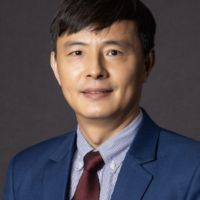
Mingjiang Li / Nanyang Technological University, RSIS, Associate professor / Singapore
Dr. Li Mingjiang is an Associate Professor and Provost Chair in International Relations at S. Rajaratnam School of International Studies (RSIS), Nanyang Technological University, Singapore. He is also the Coordinator of the PhD Program at RSIS. He received his Ph.D. in Political Science from Boston University. His main research interests include Chinese foreign policy, Chinese economic statecraft, the Belt and Road Initiative, Chinese politics, China-ASEAN relations, Sino-U.S. relations, and Asia-Pacific security. He is the author (including editor and co-editor) of 15 books. His recent books are China’s Economic Statecraft (World Scientific, 2017) and New Dynamics in US-China Relations: Contending for the Asia Pacific (lead editor, Routledge, 2014). He has published papers in various peer-reviewed outlets including International Affairs, Asian Perspective, Asian Politics & Policy, Asian Security, Oxford Bibliographies, Journal of Asian Security and International Affairs, Journal of Strategic Studies, Global Governance, Cold War History, Journal of Contemporary China, the Chinese Journal of International Politics, the Chinese Journal of Political Science, China: An International Journal, China Security, Harvard Asia Quarterly, Security Challenges, and the International Spectator.
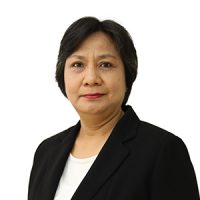
Evi Fitriani / University of Indonesia, Professor / Indonesia
Evi Fitriani is the head of the International Relations Department Faculty of Social and Political Sciences University of Indonesia, Jakarta, Indonesia. She is the co-founder of the ASEAN Study Center, University of Indonesia. She also holds a position of the Indonesia’s Country Coordinator of the Network of East Asian Think Tanks (NEAT). She holds a Ph.D. in Political Sciences and International Relations from the Crawford School of Economics and Government, the Australian National University. Her research interests include Indonesia’s foreign policy, ASEAN, Asian regionalism, Indonesia relations with Australia, Indonesia-Malaysia relations, precolonial Southeast Asia, border studies, European Union (EU) and EU-Asia relations. Her recent publications include “Linking the impacts of perception, domestic politics, economic engagements, and the international environment on bilateral relations between Indonesia and China in the onset of the 21st century” (2021) and “Indonesian views of managing disputes through cooperation in the South China Sea and the obstacles” in H. Qi and S. Xue (eds.) Cooperative Development in the South China Sea.
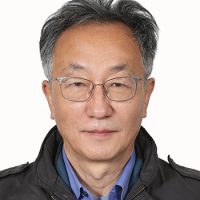
Heonik Kwon / SNUAC HK+ Mega Asia Research Project, HK Professor / Korea
Heonik Kwon is a member of Seoul National University Asia Center’s Mega Asia research group. Having taught previously in the London School of Economics, he is serving as a Senior Research Fellow of Social Anthropology at Trinity College, University of Cambridge, since 2011. Author of prizewinning books on the social history of the Vietnam War and on Asia’s Cold War experience, his recent publication is After the Korean War: An Intimate History (Cambridge, 2020). He has a forthcoming book that approaches Korea’s Cold War modernity from a religious historical angle and currently is preparing a history of conversation between Anthropology and International Politics.

Ali Fathollah-Nejad / CECID (Centre d’études de la Coopération Internationale et du développement), Université libre de Bruxelles, Researcher / Iran
Dr. Ali Fathollah-Nejad is a German–Iranian political scientist with a focus on Iran, the Middle East, the post-unipolar world order, and right-wing populism in Europe. He is the author of the much-acclaimed Iran in an Emerging New World Order: From Ahmadinejad to Rouhani (2021). Based in Berlin, he is an affiliated researcher with Centre d’Études de la Coopération Internationale et du Développement (CECID) at Université libre de Bruxelles (ULB), Freie Universität (FU) Berlin’s Center for Middle Eastern and North African Politics, and the Afro–Middle East Centre (AMEC), South Africa’s think-tank specialized on the Middle East. Ali holds a Ph.D. in International Relations from the Department of Development Studies at SOAS (School of Oriental and African Studies) University of London and was a post-doctoral Associate with the Harvard Kennedy School’s Iran Project. His recent publications include two monographs: “The Islamic Republic of Iran Four Decades On: The 2017/18 Protests Amid a Triple Crisis” (2020) and “The Politics of Culture in Times of Rapprochement: European Cultural and Academic Exchange with Iran (2015–16)” (2020). He previously held the post of senior lecturer at the University of Tübingen.
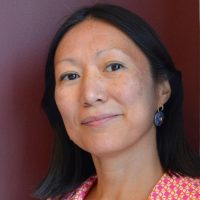
Nargis Kassenova / KIMEP University, Associate professor / Kazakhstan
Nargis Kassenova is an associate professor at the Department of International Relations and Regional Studies at KIMEP University, and currently serves as a senior fellow in the Program on Central Asia, Davis Center for Russian and Eurasian Studies at Harvard University. She holds a Ph.D. in International Cooperation Studies from Nagoya University. She is a member of the Editorial Board of Central Asian Affairs journal and Central Asian Survey journal (Taylor and Francis), and serves as a member of the Advisory Board of UN High-Level Advisory Board for Social and Economic Affairs. Her recent publications include “China-Central Asia Relations: Re-learning to Live Next to the Giant” in R. Isaacs and E. Marat (eds.) Routledge Handbook of Contemporary Central Asia, 2021; “Religious Pluralism and State Paternalism in Kazakhstan,” co-authored with Roman Podoprigora, (2020), “Kazakhstan’s Adaptation to the Belt and Road Initiative: Tracing Changes in Domestic Governance” in M.A. Carrai, J-C Defraigne and J. Wouters (eds.) The Belt and Road Initiative and Global Governance (2020), and “Relations with Russia and China” in Kazakhstan: Tested by Transition, Chatham House: The Royal Institute of International Affairs (2019).
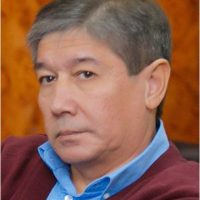
Farkhod Tolipov / Non-Governmental Research Institution “Knowledge Caravan”, Director / Uzbekistan
Farkhod Tolipov is the Director of the research institution “Bilim Karvoni,” an NGO based in Tashkent, Uzbekistan. He also serves as an adjunct professor at the Webster University in Tashkent and adjunct professor at the Akhmet Yaasuwi University in Turkestan. He is currently on the editorial board of the journal Central Asia and Caucasus and is a member of the Central Eurasian Studies Society. He previously held the position of associate professor at the Department of Political Science, The National University of Uzbekistan and research fellow at the Davis Center for Russian and Eurasian Studies at Harvard University. He received his Ph.D. in Political Science from the University of World Economy and Diplomacy, Tashkent. His recent publications include “Spirit and Letter of Strategic Partnership of India and Uzbekistan”, in D. Nandy (ed) Connecting Asia Understanding Foreign Relations, Organizations and Contemporary Issues (2020), Detecting Power in Power Projection: The Case of Uzbekistan (2019), His current research is on the topic ‘How to Define National Interests?”
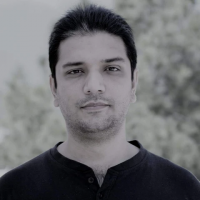
Saddam Hussein / Pakistan Institute of Development Economics, Research economist / Pakistan
Saddam Hussein is an economist, public policy analyst, writer, trainer, researcher, having five years of experience in the development sector. He graduated from the School of Economics, Quaid-i-Azam University (QAU), Islamabad. Soon afterwards, he completed his M. Phil degree in Public Policy from the School of Public Policy, Pakistan Institute of Development Economics (PIDE), Islamabad. Currently, Hussein serves as a Research Economist at PIDE. He also writes regularly for national and international print and electronic media including The News, The Diplomat, Expert Legal Review, Modern Diplomacy, The Nation, Daily Times, Matrix Mag etc. So far, he has authored more than 200 articles in the domains of security, politics, economy, institutions, philosophy and Pak-Afghan affairs. Hussein frequently delivers key-note talks, appears on TV and conducts training workshops on topics that come under governance, development, leadership, motivation, economy, rule of law and social cohesion.
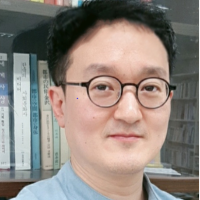
Jongseok Yoon / SNUAC HK+ Mega Asia Research Project, HK Research Professor / Korea
Jongseok Yoon is a HK research professor of Seoul National University Asia Center, Korea. He holds a Ph.D. in Sociology, a MA in Sociology, and BA in Asian History from Seoul National University, Korea. He has published articles in such journals as Citizenship Studies (in English), Society and History, Asia Review, The Journal of Modern China Studies, Sino-Soviet Affairs, Journal of Manchurian Studies, China Knowledge Network, The Korea Journal of Chinese Social Science (in Korean), and others. Also, he published several book chapters in such as Developmental Citizenship in China (in English), Minjian China, Migration and Mobilities, China’s response to COVID-19 and new knowledge (in Korean). His research interests are in political and historical sociology, political economy and global value chain, populism and nationalism, mobilities and citizenship, social and labor policies, and Asian studies.
